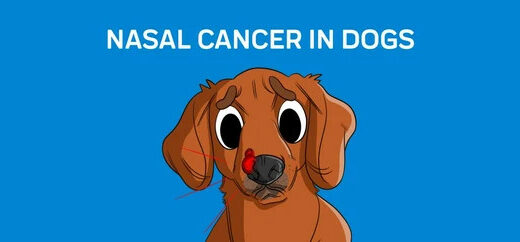Like all other types of canine cancer, primary liver cancer in dogs presents itself in many different ways. Some dogs show all of the symptoms that liver cancer can cause, whereas other dogs only express a few symptoms, and they might be so mild you don’t see them right away.
But what are these symptoms of this type of cancer? We’ll talk about the side effects that this disease causes, and then we’ll take you on a walk through the diagnostic tests and treatment options for dogs with liver cancer. There’s more than one type of canine liver cancer, so we’ll introduce you to all four forms, too!
Symptoms of Liver Cancer in Dogs

The symptoms of liver cancer often go undetected until a large tumor has developed. Until the tumor becomes noticeable, the cancer is mostly asymptomatic because you can barely tell that the dog is exhibiting any unusual behavior. However, just because it’s not apparent to the naked eye doesn’t mean the dog isn’t experiencing symptoms of canine liver cancer.
As cancer moves from the early stages into the intermediate, and sometimes late stages, you’ll be able to pick up on the symptoms of this disease in your dog, which includes:
- Changes in urination patterns
- Constipation followed by diarrhea
- Exuding more heat than normal
- Slightly higher temperature or fever
- Loss of appetite
- Weight loss
- Dizziness and low energy
- Extreme lethargy
- Almost always sleeping
- Excessive consumption of water
A Closer Look at Canine Liver Cancer Symptoms
There are some uncommon symptoms that your dog may present. There are reports that dogs with liver cancer also experience frequent vomiting, coupled with seizures that come and go. In the later stages of this canine cancer, some dogs have severe and life-threatening bleeding in their abdominal region.
Known as abdominal hemorrhaging, these bleeds stem from necrotic tumors, which means that the lymph nodes picked up on the presence of cancerous cells and worked to kill many of them, which is good but also detrimental to your dog’s blood flood. If dead cancer cells become trapped in the bloodstream, the chance of hemorrhaging is increased. This is a prime example of why vets perform blood work on dogs that might have this disease.
Many of the cancer symptoms go hand-in-hand, so it makes sense that tumors can go undetected for so long. For example, a loss of appetite leads to weight loss. You could even reverse the impact and say that weight loss can cause a lack of appetite as well.





